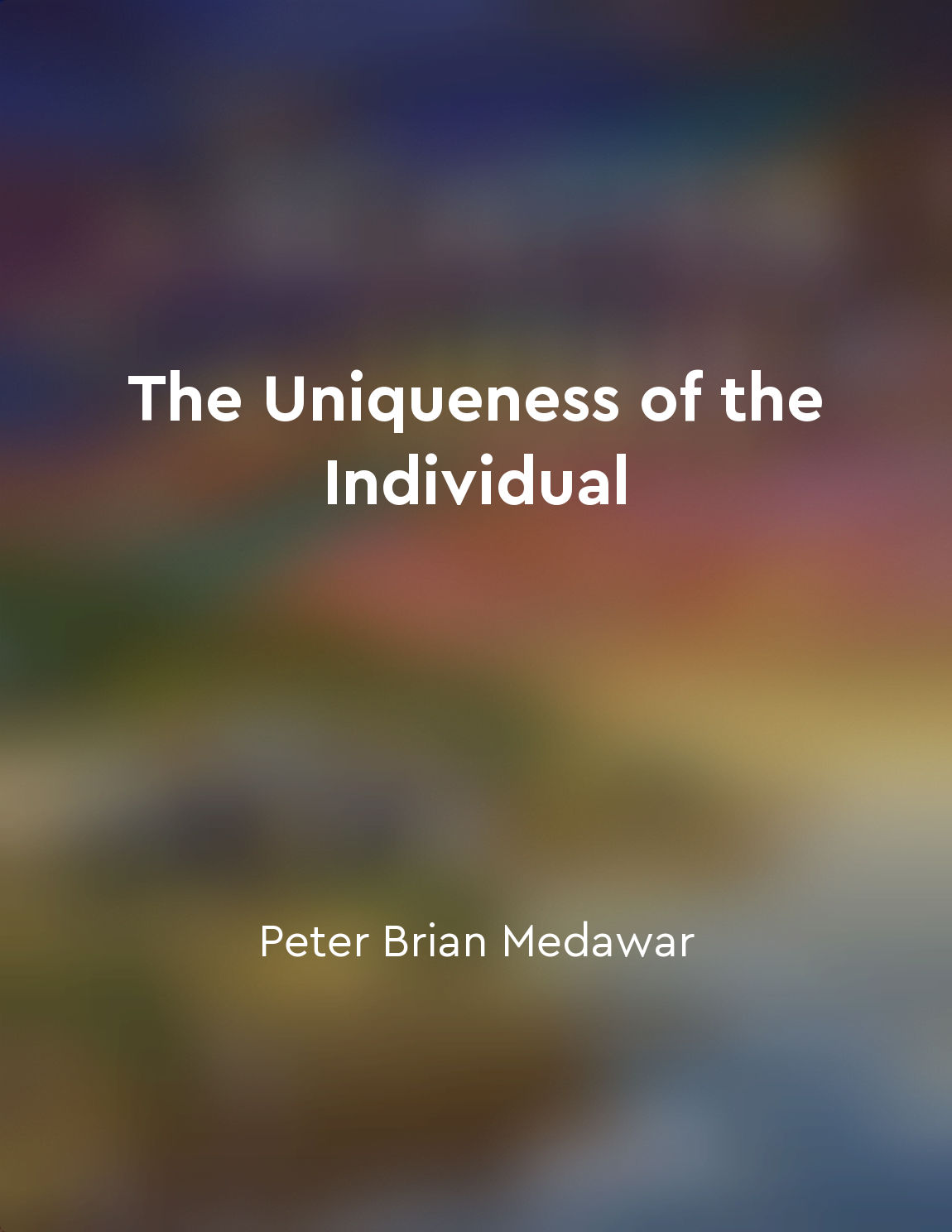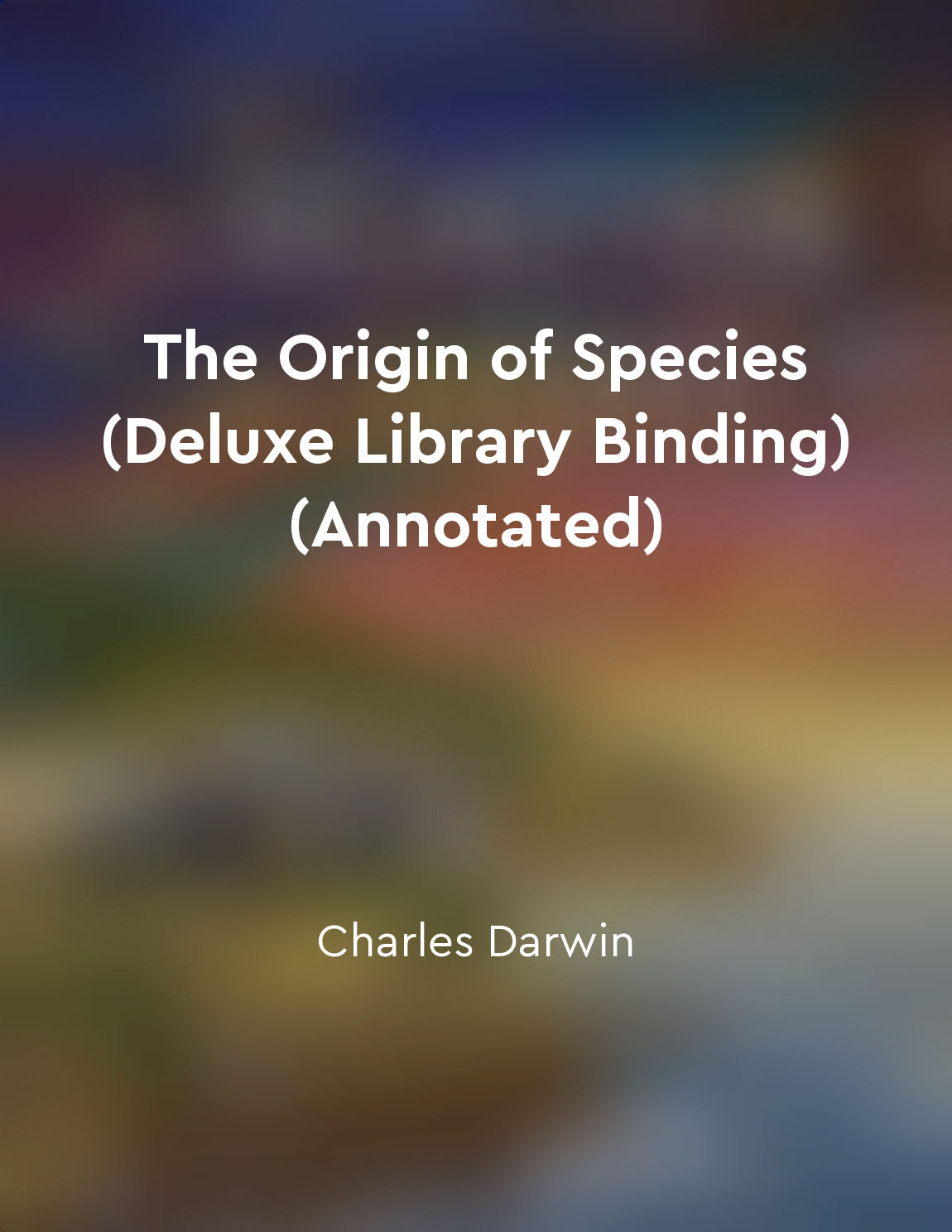Survival of the fittest is key from "summary" of The Origin of Species (Deluxe Library Binding) (Annotated) by Charles Darwin
In the natural world, competition is a constant force that shapes the evolution of species. The individuals within a population vary in their traits, and those that are better suited to their environment are more likely to survive and reproduce. Over time, this process leads to the accumulation of beneficial traits in a population, making it better adapted to its surroundings. This concept, known as natural selection, is at the heart of Darwin's theory of evolution. The phrase "survival of the fittest" captures the essence of natural selection. It is not the strongest or the most intelligent that survive, but those that are best adapted to their environment. In other words, fitness is not just about physical strength, but about how well an organism is suited to its ecological niche. This can include factors such as camouflage, speed, or the ability to find food or avoid predators. Natural selection acts on the variations that exist within a population. These variations can be the result of genetic mutations, which introduce new traits into a population. If a particular trait confers an advantage, individuals that possess it are more likely to survive and pass it on to their offspring. Over many generations, this can lead to significant changes in the population. One of the key insights of Darwin's theory is that adaptation is an ongoing process. As the environment changes, the traits that are advantageous may also change. This means that populations must continually evolve in response to their surroundings. For example, if a species' habitat becomes drier, individuals with traits that help them conserve water may have a better chance of survival. In the grand scheme of evolution, the ultimate goal is not perfection, but rather the ability to survive and reproduce in a changing world. This is why natural selection favors traits that improve an organism's chances of passing on its genes to the next generation. Through this process, species can adapt to a wide range of environments and continue to thrive in the face of new challenges.Similar Posts
Cooperation promotes shared prosperity
Cooperation is a fundamental aspect of human society that has enabled us to achieve great things throughout history. When indiv...

Accepting others' uniqueness promotes harmony
Accepting others' uniqueness is crucial for fostering harmony within society. Every individual possesses their own set of chara...

Geographic isolation fosters diversity
Geographic isolation plays a critical role in the development of diverse species. When populations of organisms are separated b...

Adaptations increase fitness
Adaptations are beneficial traits that increase an organism's chances of survival and reproduction in a particular environment....
Males and females have different evolutionary pressures
In the game of evolutionary life, males and females play by different rules. This is not a matter of preference, but of necessi...

Competition drives evolutionary change
The process of evolution is driven by the competition for limited resources among individuals within a population. This competi...
The human mind is a product of natural selection
The human mind, that extraordinary tool of thought and imagination, is not a divine gift or a mysterious force bestowed upon us...
Natural selection drives the process of evolution
Natural selection is the driving force behind the process of evolution. It is a simple concept, yet its implications are profou...
The history of life is a complex and contingent process
The history of life unfolds as a tangled web of interconnected events, each contingent upon a multitude of factors coming toget...
